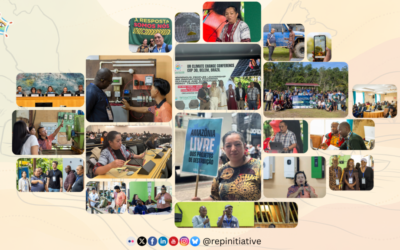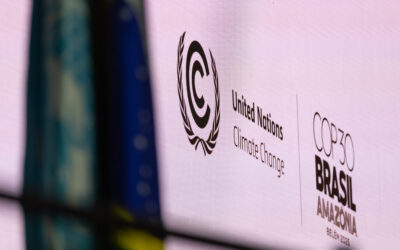by Katrina vanden Heuvel
On this day in 2010, the Deepwater Horizon oil rig exploded. In the three months that followed, until the underwater well was finally capped, 130 million gallons of oil spilled into the Gulf of Mexico. With those millions of gallons came images of animals choked by oil slick, stories of the people along the coast whose livelihoods were destroyed and demands for justice for the perpetrators. In that moment, much of the country understood that we were facing an environmental emergency.
Eleven years later, that sense of catastrophe has faded even as the environmental emergency has intensified. That single well in the Gulf of Mexico may be capped, but every day, fossil fuels contaminate our air and seas at an alarming rate. The science is clear: Continuing to pollute our earth with dirty energy will drive entire species to extinction, submerge coastal communities beneath rising seas and otherwise alter our planet for centuries. Yet we rarely see high-profile news coverage of the greenhouse gases leaking into the atmosphere each day, calls for consequences for the perpetrators or real action to support the vulnerable people whose lives are affected most by this destruction.
It’s time to change that.
The media have an indispensable role to play. Even before the global pandemic dominated headlines, broadcast news networks in the United States spent just four hours combined discussing the climate crisis in all of 2019. In response to this lack of coverage, the Nation, where I serve as publisher, partnered with the Columbia Journalism Review, the Guardian and public radio station WNYC to launch Covering Climate Now, a collaborative initiative dedicated to improving reporting on the climate crisis. Last week, the organization called on journalists to recognize what peer-reviewed science is saying: Humanity faces a “climate emergency.” To do this, the statement noted, is not a matter of politics or activism but scientific accuracy. As Scientific American’s editor in chief, Laura Helmuth,wrote in explaining why her magazine had signed the statement, “It took a lot of difficult work to overcome the resistance of major media outlets to call racism racism and a lie a lie. … It’s time to call a climate emergency a climate emergency.”
Journalists know how to convey a sense of crisis to the public — we did so a decade ago with Deepwater Horizon, and more recently with covid-19. We must treat the climate emergency with the same urgency. This will require writing more stories about it — featuring these stories more prominently, and showing how the crisis permeates every aspect of life.
Of course, communication is only helpful insofar as it prompts us to take decisive action to control it. After years of inaction, new leaders in Washington are now attempting to make up for lost time — most recently through an infrastructure bill that includes significant investments in, among other things, public transit and electric vehicles, climate technology research and development, green housing, and a Civilian Climate Corps modeled after President Franklin D. Roosevelt’s Civilian Conservation Corps. President Biden has also announced new energy standards for utilities and a strategy to incentivize sustainability through tax credits for carbon sequestration, wind and solar power, and green energy infrastructure. And the new administration is rejoining global climate efforts by signing back onto the Paris climate agreement, incorporating climate policy into future trade agreements, and convening a climate summit with world leaders later this week.
These are all crucial steps. But taken together, they bring us up to the edge of what’s politically possible — territory that has not yet overlapped with what is scientifically necessary. The rapid and immediate reduction in emissions we need can only be accomplished through far greater government investment to immediately electrify sectors that still rely on dirty energy, switch our power grid over to renewable energy sources and support those whose lives are disrupted by the transition. It will also require putting a price on carbon to align the private sector with climate goals.
Pushing that boundary will require people across the world speaking up. In recent years, young activists in many countries have been especially effective at sounding the climate alarm, from Sweden’s Greta Thunberg to South Africa’s Yola Mgogwana to Australia’s Harriet O’Shea Carre and Milou Albrecht. They have paired the kind of urgency we felt in the wake of the Deepwater Horizon disaster with a message of hope for the world we can build if we meet the moment. This way, as growing numbers wake up to the climate emergency, they respond not with resignation but with determination. As Thunberg told Congress in 2019, “You must unite behind the science. You must take action. You must do the impossible. Because giving up can never ever be an option.”
Source: The Washington Post




0 Comments